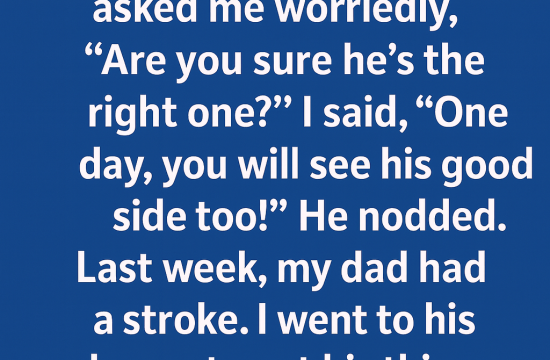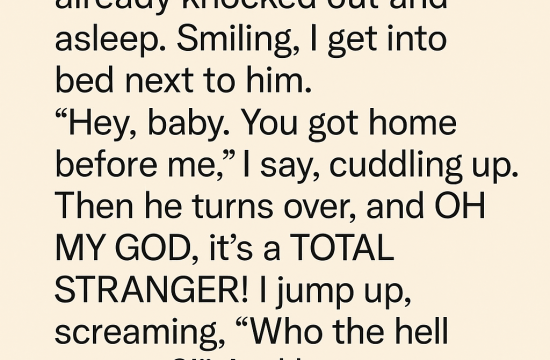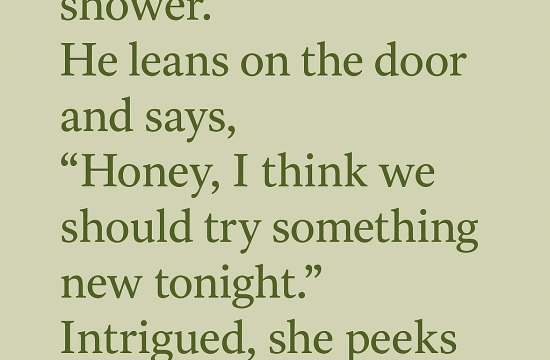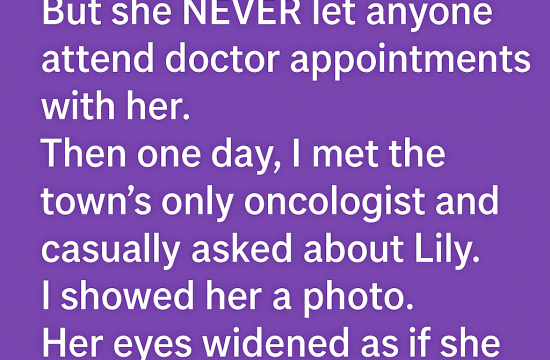When Eleanor was abandoned by the church she served for nearly fifty years, her silence spoke louder than any sermon. As her granddaughter watched heartbreak turn into clarity, one final act of truth was set in motion. This is an unforgettable story of legacy, faith, and the quiet power of not being forgotten.
The day of my grandmother’s funeral was sunny. No thunderclaps, no storm clouds. Just warmth—the kind she always carried with her.
Her name was Eleanor, and she served her church for nearly five decades without ever asking for anything. Until she needed them. And they gave her nothing.
Not one church leader came to her funeral. Not by mistake, but by design.
They weren’t invited.
It hadn’t always been this way.
My grandmother had once been the heartbeat of that Southern Baptist congregation—a place that prided itself on “family values,” tradition, and photo ops of pastors shaking hands with senators.
She was the woman who showed up before anyone else, stayed after everyone left, and filled in wherever she was needed. Nursery duty, potlucks, bake sales, youth retreats—Eleanor’s hands had touched every corner of that church.
And she asked for nothing in return.
She was faithful. She was humble.
She was invisible—in the way that women who do the quiet work of holding communities together often are.
But her real gift wasn’t her service.
It was how she made people feel. You never left Eleanor’s kitchen or classroom without feeling taller. She saw you—that was her superpower.
I was seven the first time I stayed at her house alone. When I woke from a nightmare, I found her door already open, as if she had been waiting for me. She hummed a hymn I didn’t know but still remember, her hand rubbing soft circles on my back until my breath slowed.
That was her magic. She didn’t always know what to say—but she always knew what you needed.
When I had my first heartbreak at sixteen, she didn’t offer advice or scripture. She just poured sweet tea into two jars and sat beside me on the porch.
“If someone makes you feel small,” she said gently, “they don’t belong near the big, beautiful things inside you.”
She taught me faith without preaching. Strength without noise. Love without condition.
She was my compass—the standard I measured the world against.
And when the world turned its back on her, I promised myself it wouldn’t be the last chapter in her story.
She was seventy-three when the accident happened. Her legs never fully healed, and the woman who once gardened before sunrise now struggled to reach her mailbox.
She called the church for rides. For prayer. For company.
No one came.
Not Pastor J., who’d baptized her grandkids and once praised her as “the backbone of this congregation.”
Not Pastor M., who used to joke that her potato salad could save souls.
For ten years, she sat in that small house, watching sermons online and mailing her tithes in envelopes with shaky hands. She still baked cupcakes for church kids’ birthdays. Still sent cards. Still believed.
When I visited on Sundays, she’d ask the same question every time:
“Did Pastor J. say anything about me?”
At first, I lied. Small lies meant to soften the truth.
“He says he’s praying for you, Gran.”
But one day, I couldn’t do it anymore.
“Gran… they don’t ask about you.”
She didn’t cry. She just nodded, as if her heart had already known. Her spoon stopped mid-stir in her tea. She didn’t drink it that day. And she never mentioned them again.
Years later, in hospice, she asked me to call the pastors. “I just want to discuss the hymns,” she said. “Maybe that verse about wings like eagles.”
Only one came—Pastor M.
He stayed fifteen minutes and spent twelve of them asking if she’d remembered the church in her will.
“She’s not gone yet,” my grandfather snapped.
“Just planting seeds,” Pastor M. smiled.
After he left, Gran whispered, “He didn’t ask me about my soul. He just asked me about my money.”
Then, for the first time in decades, she cried.
That was the day her clarity arrived.
In the months that followed, Eleanor planned. Quietly, deliberately. The same way she had once planned youth retreats and Sunday dinners.
And when she passed, we honored her truth.
Her funeral was small—held in a simple hall, not the church she’d built her life around. My grandfather stood at the front, her Bible clutched to his chest. His voice didn’t shake.
“They abandoned her,” he said. “And when she was dying, they came not for her blessing or forgiveness—but her estate.”
We sang It Is Well With My Soul, the hymn she used to hum in her kitchen. The people who came weren’t leaders or pastors—they were neighbors, former students, kids she’d once driven in the church van. They remembered her not for what she gave, but for who she was.
Two weeks later, we gathered for the reading of the will.
When the pastors showed up in polished shoes, I felt my stomach twist.
To my grandfather, she left her share of the house, their savings, and a letter:
“You gave me the strength to give to everyone else. Now, I give it all back to you.”
To me, her first Bible and her recipe book.
“You’re the light of every room, my Callie girl. Keep shining.”
Then the lawyer unfolded a final letter.
“To the pastors of the church I once called home,” she had written.
“I loved you. I served beside you. I believed in you.
But when I could no longer serve or give, you stopped seeing me.
I waited for calls that never came. You left me alone—until there was something to collect.
I once planned to leave you a fifth of my estate.
Pastor J., you ignored me.
Pastor M., you reduced me to a transaction.
For that, you each receive one cent.
The rest goes to Reverend Lila Hayes, who prayed with me, cooked for me, and showed up.
She was the hands and feet of the Lord when you were only the mouth.”
The room went silent.
Pastor J. muttered, “This is cruel.”
Grandpa Walter stood. “No,” he said. “This is truth.”
The funds Eleanor redirected went on to feed families, fund foster care aid, and build a reading library for children.
“Your grandmother was a light,” Reverend Hayes told me later. “And now she’s still shining.”
That’s how I choose to remember her—
Not as the woman the church forgot,
but as the one who reminded them what grace really looks like.











